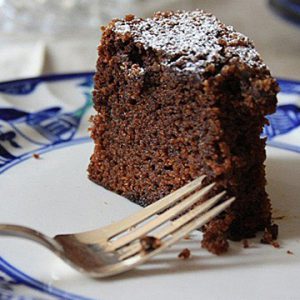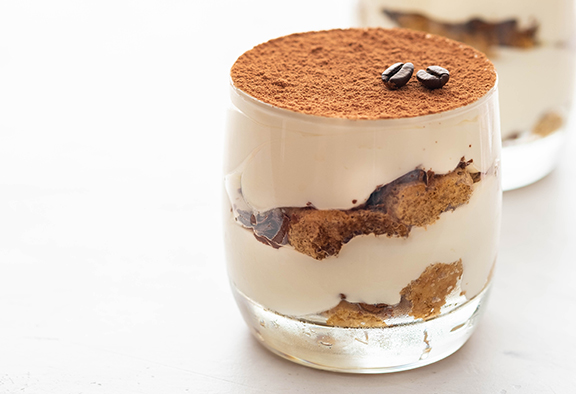February 1, 2021
The Best Sugar Substitutes For People With Diabetes | Pros & Cons | US MED
Monk fruit, stevia, saccharin, how should you choose the best sugar substitute to fit your diabetes lifestyle? We identify the best and provide a substitutions chart for baking.
Share This Story

The Best Sugar Substitutes For People With Diabetes + Their Pros & Cons
Halloween, Christmas, Valentine’s Day, birthdays… no matter which month we’re in, there’s always an occasion that seems to call for sweet treats. It can be hard to ignore your sweet tooth–but for people with diabetes, it’s especially important to understand sugar to manage glucose levels.
One potential solution to this dilemma: sugar substitutes! These sweeteners promise to help people with diabetes enjoy sweet treats without putting their glucose levels at risk. Most of these products are not broken down by the body they pass through without providing any calories. However, not all sugar substitutes are created equal – and some come with notable health risks of their own. Keep reading to learn about the best sugar substitutes for diabetes.
The Pros & Cons
Some of the most common sugar substitutes out there are artificial sweeteners like Nutrasweet, Sweet ‘N Low, and Splenda. These sweeteners can add a sugary taste to foods and beverages while having a minimal impact on your carb count. They’re also very sweet – much sweeter than sugar.
On paper, artificial sweeteners seem like they’d be perfect for people with diabetes…they can be an effective alternative to sugar for some people, but it’s a personal choice.
The FDA has reviewed several sugar substitutes and has recognized the following as safe for people with diabetes:
- Saccharin (Sweet’n low)
- Neotame (Newtame)
- AcesulfameK (Sunett, Sweet One)
- Aspartame (Nutrasweet, Equal, Sugar Twin)
- Sucralose (Splenda)
- Advantame
- Stevia
- Luo han guo (monk fruit)
But it’s not that simple. Unfortunately, artificial sweeteners bring additional issues to the table, including possible weight gain that could make it harder for you to manage your diabetes. Just because you see claims like “sugar free,” “reduced sugar,” or “no sugar added” these are not foods that are necessarily carbohydrate free or lower in carbohydrate than the original version of the food and certainly not calorie free.
Studies on artificial sweeteners still continues and studies on how they affect glucose and insulin levels have shown mixed results. The effects also vary between the different sweeteners. At this time, there is no clear evidence to suggest that using sugar substitutes will help with managing your blood sugar or help you lose weight.
Some critics of artificial sweeteners believe that there are health issues associated with their use. This is mainly because of studies dating to the 1970s that linked saccharin to bladder cancer in lab rats. Because of this, saccharin once carried a warning label and later it was dropped. According to the National Cancer Institute and other health agencies, there is no scientific evidence that any of the artificial sweeteners approved for use in the US cause cancer or other serious health problems. Studies confirm that these sweeteners are generally safe in limited quantities. Bottom line: No need to overdo it, moderation is the key. If you prefer more naturally occurring sweeteners, read on!
Stevia
If you’re looking to enjoy a sweet treat while staying safe, stevia is one of your best options. This isn’t an artificial sweetener per se – it’s made from the stevia plant’s leaves. And unlike some sweeteners, stevia can actually boost people’s glucose tolerance!
There are many different stevia blends on the market, some of which include other sweeteners that can raise your glucose levels. If you do your research and use stevia in moderation, though, it can be a big help in your efforts to manage your diabetes.
Tagatose
Like stevia, tagatose is a natural alternative to artificial sweeteners. It is considered a novel sweetener and it is manufactured from the lactose in dairy products. Tagatose is on the FDAs GRAS (generally recognized as safe) list. Research on this sweetener is still in its early stages, but early findings are promising: the sweetener may help lower glucose levels and could even be used as an anti-obesity and anti-diabetes medication.
The catch, of course, is that there’s still more work to be done. Thinking about trying tagatose? Make sure you talk to the medical professionals first.
Fruit-Based Sugar Substitutes
Interested in a different natural option? If so, look no further than plants famous for being sweet – fruit! A number of popular sugar substitutes are made from fruit, including monk fruit extract, which contains no calories or carbohydrates.
Date sugar, which contains one-third fewer calories than “normal” sugar, is another sugar substitute made from a fruit. And, if you want to keep things as natural as possible, you can always use fresh fruit to add a sweet touch to your meals.
Keep An Eye Out For Sugar Alcohols
Quick question: If a product has “sugar free” or “no sugar added” on the box, it won’t have an impact on your glucose levels, right? Wrong. In some cases, these products contain so-called “sugar alcohols” that don’t work quite the same as some other sugar substitutes. Sugar alcohols are sweeteners that contain about half the calories of regular sugar. You will find sugar alcohols in the nutrition facts label under total carbohydrates.
Sugar alcohols are neither a sugar or an alcohol. They occur naturally in certain fruits and vegetables. The sugar alcohols you’ll find in processed foods are synthetic in nature. Still, they’re considerably different from the artificial sweeteners we looked at earlier. Unlike these sweeteners, sugar alcohols can be metabolized without the use of insulin, and they can digest in your intestine (to an extent). They also aren’t quite as sweet as artificial sweeteners and don’t have the aftertaste commonly associated with them.
Sugar alcohols the FDA has approved include:
- Xylitol
- Sorbitol
- Isomalt
- Erythritol
- Maltitol
Though they’re not artificial sweeteners, it’s important to remember that sugar alcohols are still considered carbohydrates. They won’t have the same impact on your glucose levels that sugar will, but you should still include them while counting carbs.
Finally, sugar alcohols come with a handful of known side effects – gas, abdominal pain, and bloating among them. If you’re worried about this, remember that erythritol is easier for the human body to tolerate than some other sugar alcohols.
How Much Is Too Much?
While some of the sweeteners covered in this article are healthier for people with diabetes than others, that doesn’t mean you can binge on the “good” ones without consequences. After all, weight management is an important part of keeping diabetes under control – just because you’re not eating sugar doesn’t mean you’re not eating. Because of this, no matter what your sweetener of choice is, don’t overdo it.
Instead, focus on eating healthy, well-balanced meals that are full of vegetables, proteins, and healthy carbs like whole grains. With a good diet as your starting point, you can use sugar substitutes in occasional sweet treats.
Baking With Sugar Substitutes
If you’d like to bake with sugar substitutes while preparing for your next special occasion, it’s important not to use too much or too little of your sweetener of choice. To make life easier for you in the kitchen, we’ve put together a chart detailing how to use some popular sugar substitutes in recipes that call for sugar.
Sugar Substitutes Chart
| Sweetener | 1 tsp. sugar | 1 Tbsp. sugar | ¼ cup sugar | ⅓ cup sugar | ½ cup sugar | 1 cup sugar |
| Truvia Spoonable | ½ tsp. | 1 ¼ tsp. | 1 Tbsp. + 2 tsp. | 2 Tbsp. + 1 tsp. | 3 ½ Tbsp. | ⅓ + ½ Tbsp. |
| SweetLeaf Sweet Drops Liquid Sweetener | – | ⅛ tsp. | ½ tsp. | ⅔ tsp. | 1 tsp. | 2 tsp. |
| Lakanto Monkfruit Sweetener | 1 tsp. | 1 Tbsp. | ¼ cup | ⅓ cup | ½ cup | 1 cup |
| Erythritol (any brand) | 1 ¼ tsp. | 1 Tbsp. + 1 tsp. | ⅓ cup | ⅓ cup + 2 Tbsp. | ⅔ cup | 1 ⅓ cup |
Need some inspiration before you’re ready to start baking? Check out our full collection of recipes, which includes a variety of delicious desserts.








